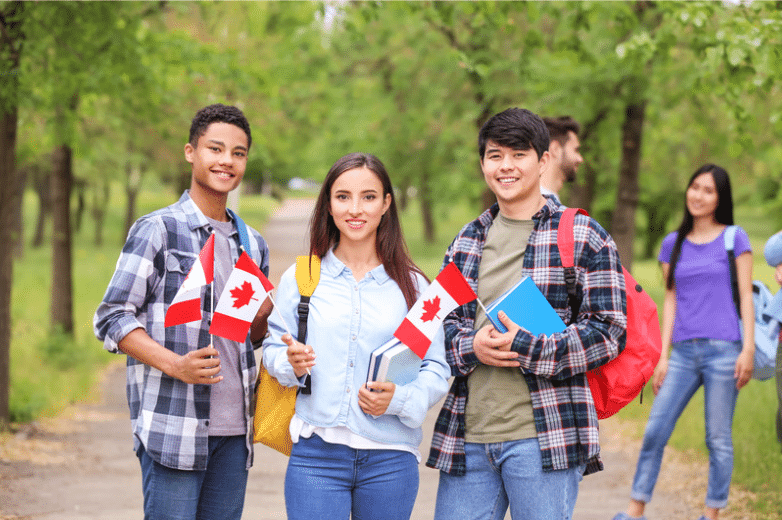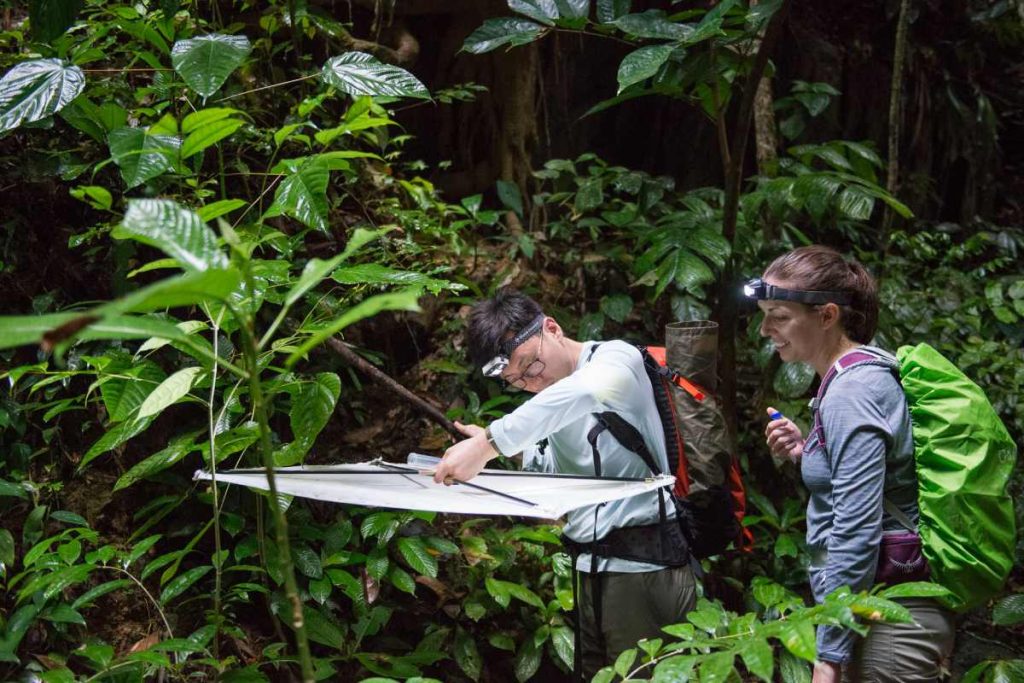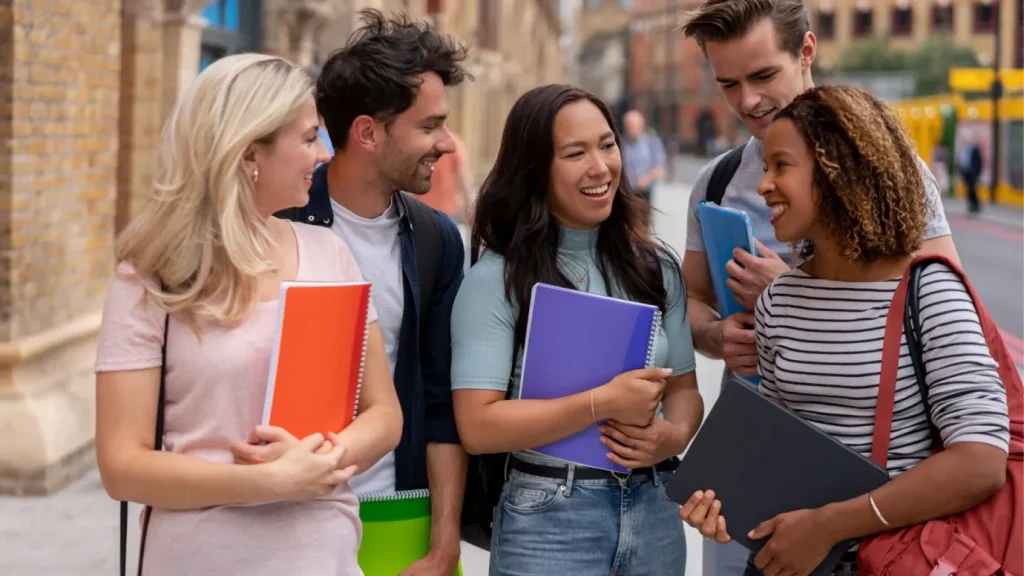Traveling has long been seen as a means to escape from the mundane and experience new cultures, landscapes, and lifestyles. However, for those who seek to deepen their understanding of the world, educational travel has become an enriching and transformative experience. Educational travel adventures are journeys that merge exploration with learning, offering participants opportunities to discover new places, people, history, and ideas that enrich both their minds and lives.
From school field trips to international study programs, educational travel can take many forms, but the impact it has on individuals is undeniable. Whether it’s gaining a better understanding of a foreign culture, broadening one’s perspective on global issues, or discovering the wonders of history through firsthand experiences, educational travel offers something unique that traditional classroom learning cannot. It allows for experiential learning, which is often far more impactful than the passive absorption of facts in a classroom setting.
In this article, we explore the profound impact of educational travel adventures, the numerous benefits they provide, and the ways in which these journeys of discovery help to shape and enrich lives.
Key Takeaways
- Educational travel provides hands-on, experiential learning that enhances understanding beyond traditional classroom settings.
- It fosters cultural awareness, empathy, and personal growth through exposure to diverse environments.
- These trips develop critical thinking, problem-solving, and communication skills.
- Educational travel creates lasting memories, offering lifelong enrichment and personal stories.
- People of all ages can benefit from educational travel, which supports both personal and professional development.
In an increasingly interconnected world, educational travel enriches not only the traveler’s mind but also contributes to a broader understanding of the world, helping individuals grow into global citizens with a deeper appreciation for the diversity and richness of human experience.
The Importance of Educational Travel
Educational travel is more than just sightseeing. It’s an intentional journey designed to foster personal growth, deepen cultural understanding, and facilitate learning in ways that textbooks and online resources cannot. Whether traveling for a few days, weeks, or months, the experience of exploring new environments provides hands-on learning that can significantly enhance one’s understanding of the world.
The core value of educational travel lies in its ability to offer learning opportunities outside of traditional educational settings. Engaging with local communities, visiting historical landmarks, and participating in cultural exchanges provide exposure to new ideas, customs, and knowledge. These experiences allow learners to connect abstract concepts with real-world examples, creating lasting memories that deepen understanding.
The Benefits of Educational Travel Adventures
Educational travel enriches the traveler in ways that are often difficult to quantify, but the benefits are undeniable. These experiences not only broaden one’s knowledge but also foster personal growth, empathy, and cultural appreciation. Let’s delve into some of the key benefits of educational travel adventures.
Expanding Cultural Awareness
One of the most significant advantages of educational travel is the exposure to diverse cultures. By visiting different regions and interacting with people from various backgrounds, travelers can gain a deeper appreciation of cultures that differ from their own. This cultural immersion helps develop a more nuanced understanding of the world, fostering open-mindedness and empathy.
Whether it’s learning about local traditions, tasting authentic cuisine, or participating in local events, educational travel encourages individuals to see the world through a broader lens. Cultural exchanges and language immersion programs, in particular, can improve communication skills, boost cultural sensitivity, and prepare students or adults for success in a globalized world.
Hands-On Learning and Experiential Education
Experiential learning is one of the most valuable aspects of educational travel. Instead of relying on second-hand information, travelers can engage in learning by experiencing events and phenomena firsthand. For instance, visiting ancient ruins and historical sites gives travelers a tactile connection to the past, helping them appreciate the context of historical events in ways that books and documentaries simply cannot.
Similarly, attending workshops, museums, and research centers opens up opportunities for travelers to delve into specific subjects. An archaeological dig in Egypt or an art history tour in Italy offers immersive learning experiences that bring academic subjects to life. This hands-on approach reinforces classroom learning and helps learners develop practical skills that can be applied to future academic or career pursuits.
Enhancing Critical Thinking and Problem-Solving Skills
Educational travel often involves navigating unfamiliar environments, whether it’s figuring out transportation logistics in a foreign city or understanding a local custom that is different from one’s own. These experiences promote critical thinking and problem-solving skills as travelers must adapt to new situations, make decisions, and think on their feet.
Such challenges can push individuals to become more resourceful, resilient, and open to learning new ways of doing things. This sense of adaptability and flexibility can benefit travelers in their personal and professional lives, preparing them for complex problem-solving scenarios in the future.
Fostering a Love of Learning
For many, educational travel ignites a passion for learning that extends beyond the trip itself. The excitement of discovering new places, people, and ideas can create a lifelong love for learning and intellectual curiosity. Educational travel helps break down the traditional boundaries of formal education by showing that learning does not have to be confined to a classroom.
By exploring new environments, students or adults alike can find inspiration to pursue specific areas of interest or academic pursuits. It can also encourage learners to approach challenges with enthusiasm, making them more motivated and open-minded in their educational journey.
Building Global Connections and Networking
Another vital aspect of educational travel is the opportunity to meet new people, build relationships, and network across cultural divides. Whether engaging with fellow travelers, local students, or community members, the connections made on educational journeys often extend beyond the trip itself.
These global connections can help to build networks that offer personal, academic, or professional benefits in the future. Furthermore, having diverse international relationships helps individuals develop global perspectives, creating opportunities for collaboration in an increasingly interconnected world.
Personal Growth and Self-Discovery
Travel, particularly educational travel, offers numerous opportunities for self-reflection and personal development. Being in new environments challenges individuals to step outside their comfort zones, develop self-confidence, and increase independence. These experiences encourage people to become more self-aware, improve their communication skills, and expand their emotional intelligence.
Moreover, educational travel often requires learners to set goals, plan their trips, and organize their time effectively. The sense of accomplishment that comes from successfully navigating an unfamiliar destination and achieving learning goals can boost self-esteem and contribute to personal growth.
Creating Lasting Memories and Personal Stories
One of the most enduring benefits of educational travel is the wealth of memories and personal stories it creates. From an unforgettable interaction with a local guide to a profound realization during a historical tour, these memories often stay with individuals for a lifetime. They become part of one’s identity, shaping who they are and how they perceive the world.
These stories are not only valuable for the travelers themselves, but they can also be shared with others, further enriching the lives of those who hear them. Educational travel transforms journeys into cherished experiences that carry meaning far beyond the immediate trip.
Educational Travel for All Ages
While educational travel is often associated with students, people of all ages can benefit from these enriching adventures. From schoolchildren embarking on their first international trip to retirees traveling to learn about history or art, educational travel is suitable for a wide range of individuals.
For younger learners, educational trips can complement traditional school curriculums, offering real-world learning opportunities that deepen their understanding of subjects like history, geography, and science. For adults, especially those pursuing professional development or life enrichment, educational travel can provide opportunities to acquire new skills, broaden horizons, and even foster new career opportunities.
Discovering the World: Unforgettable Educational Travel Experiences
In an ever-evolving world, education is no longer confined to the four walls of a classroom. One of the most enriching ways to expand knowledge, gain new skills, and immerse oneself in the world’s diverse cultures is through educational travel. Educational travel experiences offer hands-on learning opportunities that textbooks, online courses, or lectures simply cannot provide. These journeys combine the joy of exploration with the depth of knowledge, allowing travelers to engage in authentic, meaningful learning.
Whether it’s a school trip to explore historical landmarks, a study-abroad program focused on language learning, or an immersive cultural exchange in a foreign country, educational travel experiences shape the way we view the world, encouraging growth, exploration, and understanding.
In this article, we explore the unforgettable experiences that come with educational travel and how they enhance our lives in profound ways. From broadening perspectives and building skills to creating lifelong memories, these journeys of discovery enrich not only the traveler’s mind but also their soul.
Why Educational Travel is So Powerful

Educational travel offers many advantages, but its most significant benefit is the opportunity it provides for experiential learning. Rather than sitting in a classroom, students and travelers venture into real-world environments that bring history, science, art, and culture to life.
Experiential learning, often described as “learning by doing,” emphasizes active participation in the learning process. This form of education encourages individuals to reflect on their experiences, ask questions, and critically analyze their surroundings. By immersing themselves in the places they visit, educational travelers gain a deeper understanding of the subjects they study and are often more engaged and inspired than they would be in a traditional academic setting.
Moreover, educational travel fosters empathy, intercultural communication, and open-mindedness, as travelers interact with people from different backgrounds. It strengthens global awareness and allows participants to connect with others in ways that transcend borders and languages.
Top Unforgettable Educational Travel Experiences
There are countless types of educational travel experiences, each offering something unique. Below are some of the most unforgettable and enriching experiences travelers can embark upon:
Historical Exploration: Walking Through the Past
For history enthusiasts, visiting ancient civilizations, historical sites, and cultural landmarks offers an unparalleled opportunity to learn firsthand about the past. Educational tours to destinations like Rome, Athens, or the pyramids of Egypt allow travelers to step into the shoes of people who lived thousands of years ago.
Imagine standing in the Colosseum, tracing the footsteps of gladiators and emperors, or walking through the ancient streets of Pompeii, frozen in time by a volcanic eruption. These historical sites give a tangible connection to history that no book or documentary can replicate. The ability to explore ancient ruins, visit famous museums, and learn from local experts or archeologists enriches students’ understanding of the world’s most significant events.
Cultural Immersion: Learning Through Interaction
Cultural immersion is one of the most transformative forms of educational travel. Whether participating in a homestay with a local family, volunteering in a community development project, or attending a language school abroad, immersion experiences allow travelers to interact directly with locals and learn about their way of life.
For example, learning Spanish while living with a host family in Spain or participating in a cooking class with locals in Thailand can provide insights into the culture that are far more enriching than simply reading about them. Experiencing daily life in another country, hearing firsthand stories from residents, and getting involved in local traditions all contribute to deepening cultural understanding and global awareness.
Scientific Discovery: Fieldwork in Nature

Scientific travel offers students and enthusiasts the opportunity to explore the natural world and engage in hands-on research. Whether studying marine biology on a coastal research trip, participating in environmental conservation efforts, or engaging in ecological fieldwork in remote locations, scientific travel creates a unique learning experience.
Traveling to places like the Galapagos Islands to observe wildlife or studying the effects of climate change in the Arctic allows participants to connect with the natural world on a profound level. Scientific travel offers invaluable real-world experience that is vital for students pursuing careers in environmental sciences, biology, or related fields. These experiences also highlight the importance of preserving the planet for future generations.
Art and Architecture: Inspiration for Creativity
For those interested in art and design, educational travel provides an incredible opportunity to witness some of the world’s greatest masterpieces and architectural wonders. Whether visiting the Louvre in Paris, the Sagrada Familia in Barcelona, or the temples of Kyoto, art and architecture travel broadens an individual’s creative perspective and fosters a deep appreciation for cultural heritage.
Art and architecture tours often include workshops, hands-on activities, or art classes, allowing travelers to express their creativity while learning from professional artists and architects. By immersing themselves in iconic locations that have inspired great artists and designers, travelers gain a deeper understanding of artistic movements, design principles, and the evolution of human expression.
Language Learning: Studying in the Country

One of the most popular forms of educational travel is language learning abroad. Whether enrolling in an intensive language course in Paris, Berlin, or Buenos Aires, or simply spending time in a foreign country practicing the language with locals, language immersion is an effective and rewarding way to learn.
Living and studying in a country where the target language is spoken forces students to engage with the language in daily interactions, helping them develop fluency and cultural competency. Language immersion programs also provide the opportunity to learn about local customs, traditions, and history through the lens of the language itself, making the learning process far more meaningful and authentic.
Adventure and Outdoor Education: Learning Through Challenge
Outdoor and adventure education programs provide a thrilling way to learn while experiencing the natural world. Activities like hiking, rock climbing, kayaking, and wilderness survival training can be as educational as they are physically demanding. These experiences teach important life skills such as teamwork, problem-solving, leadership, and perseverance.
Organizations offering adventure-based educational travel often focus on environmental conservation, sustainability, and outdoor education, fostering a greater appreciation for nature and the importance of protecting the planet. Additionally, these types of experiences often challenge participants to overcome personal fears and limitations, leading to profound personal growth.
Volunteering and Service Learning: Giving Back
Service learning and volunteering abroad provide the opportunity for travelers to contribute to meaningful projects in the communities they visit. From building schools in rural areas to assisting with wildlife conservation efforts, these types of educational trips allow individuals to use their skills and time to make a positive impact while learning about the challenges faced by others.
Volunteering fosters a sense of global citizenship and compassion, as participants often live and work alongside locals who may have different socio-economic backgrounds. The lessons learned during these experiences can shape one’s worldview, increase empathy, and inspire a commitment to social change.
Conclusion
Educational travel adventures offer an unparalleled opportunity to learn, grow, and experience the world in ways that textbooks alone cannot achieve. From expanding cultural awareness and enhancing critical thinking skills to fostering personal growth and building lasting memories, these journeys of discovery enrich both minds and lives.
Traveling with a purpose—whether for academic, professional, or personal enrichment—creates lifelong benefits that go far beyond the trip itself. Educational travel opens doors to new perspectives, fosters meaningful connections, and ignites a lifelong passion for learning.
FAQ
What is educational travel?
Educational travel involves journeys that are designed to provide learning opportunities beyond traditional classrooms. This can include cultural immersion, historical tours, scientific explorations, and language learning.
Who can benefit from educational travel?
Educational travel is suitable for people of all ages, from children to adults. It is beneficial for anyone seeking to expand their knowledge, engage in hands-on learning, and experience new cultures.
What are some examples of educational travel experiences?
Examples of educational travel include school field trips to museums, study-abroad programs, cultural exchange programs, archaeological digs, or language immersion trips.
How does educational travel differ from regular tourism?
Educational travel focuses on learning and personal growth, whereas regular tourism is more centered on leisure and sightseeing. Educational travel includes planned activities, workshops, and lectures designed to facilitate learning.
What are the benefits of cultural exchange programs?
Cultural exchange programs allow participants to immerse themselves in a different culture, improving language skills, gaining cross-cultural understanding, and fostering personal growth.
How can educational travel impact future career prospects?
Educational travel helps build global awareness, enhances problem-solving abilities, and fosters networking opportunities—all of which are valuable assets in today’s global job market.
How do I find educational travel opportunities?
Many organizations, travel agencies, schools, and universities offer educational travel programs. Researching specific trips based on your interests and goals is a good way to get started.
